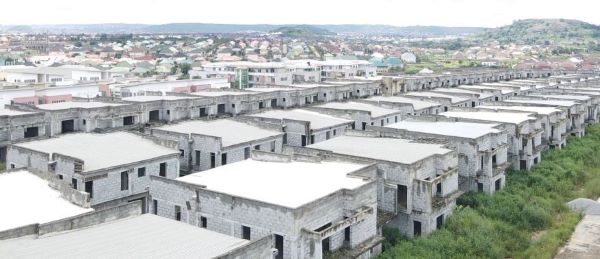Justice Jude Onwuegbuzie on Monday ruled for the final forfeiture of a massive estate in Abuja measuring 150,500 square meters, comprising 753 duplexes and other apartments. This marks the single largest asset recovery by the Economic and Financial Crimes Commission (EFCC) since its establishment in 2003. The estate is located on Plot 109, Cadastral Zone C09, Lokogoma District, Abuja.
The forfeiture, involving a former high-ranking government official, underscores EFCC’s mandate to ensure that proceeds of corruption and fraudulent activities are returned to the federal government. The case relied on Section 17 of the Advance Fee Fraud and Other Fraud-Related Offences Act No. 14, 2006, and Section 44(2)(b) of the 1999 Constitution.
In delivering the judgment, Justice Onwuegbuzie stated, “The respondent has not shown cause as to why he should not lose the property, which has been reasonably suspected to have been acquired with proceeds of unlawful activities. The property is hereby finally forfeited to the federal government.”
The final forfeiture followed an interim forfeiture order issued by the same judge on November 1, 2024. The EFCC has been investigating the former official who fraudulently acquired the estate. This forfeiture is part of the Commission’s broader strategy to deprive suspects of criminal proceeds, as outlined in Section 7 of the EFCC Establishment Act.
The Act empowers the EFCC to investigate and seize assets when individuals’ properties and lifestyles are inconsistent with their legitimate income. EFCC Chairman Ola Olukoyede has emphasized the critical role of asset recovery in combating corruption.
“If you understand the intricacies of financial crime investigations and prosecutions, you will realize recovering even one billion naira is a war,” Olukoyede explained. He highlighted the importance of simultaneous investigation and asset tracing to weaken suspects’ ability to resist investigations, adding, “Our modus operandi has changed. The moment we begin an investigation, we begin asset tracing. That was what helped us achieve this milestone.”
Under Section 24 of the EFCC Establishment Act, once assets linked to suspected economic crimes are identified, the Commission applies for interim forfeiture. Upon court satisfaction of prima facie evidence, a final forfeiture is secured.
This landmark recovery not only underscores EFCC’s operational efficiency but also reflects President Bola Ahmed Tinubu’s commitment to the anti-corruption fight. It serves as a strong disincentive to corruption and reinforces the administration’s resolve to tackle financial crimes head-on.


